Women in Science Entrepreneurship, “Follow your passion and find the support you need to succeed”
March 28, 2023
Despite significant progress in recent decades, women continue to face unique challenges in science. According to a 2021 report by UNESCO, only 33 percent of researchers worldwide are women, and a survey conducted by the American Association of University Women found that women in STEM fields are more likely than men to experience discrimination and harassment at work. Women in science and technology startups receive only two percent of venture capital funding, according to a 2019 report by PitchBook. The struggles of women in science are particularly acute for those who pursue entrepreneurship, as they often face additional obstacles in launching and growing successful ventures. Despite these difficulties, women are increasingly breaking through barriers to make significant contributions to their fields, and inspiring future generations of women to do the same. We asked some Activate Fellows about their inspiring personal stories.
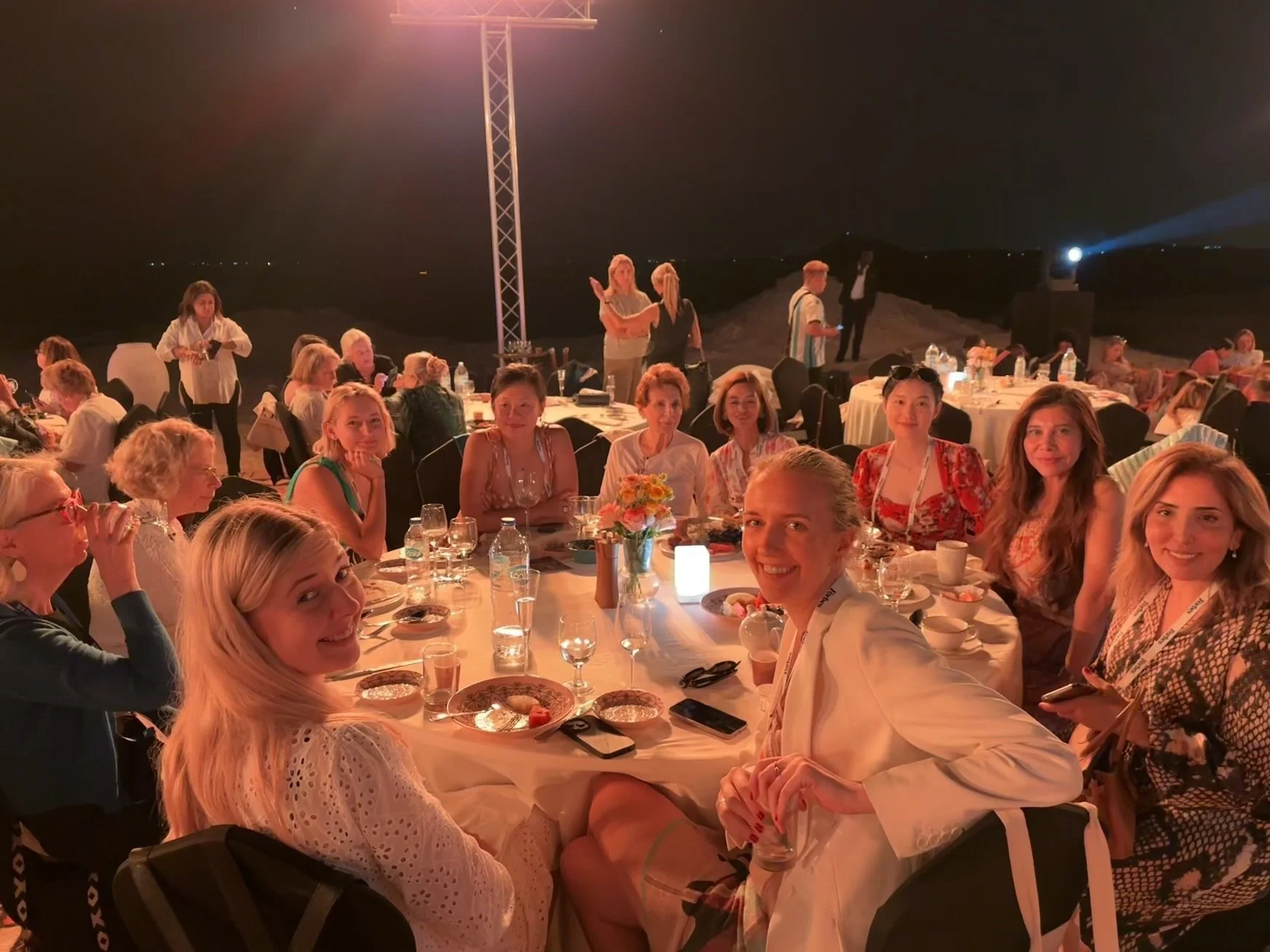
Yajing Zhao (Cohort 2022, Mesophase) and Kezi Cheng (Cohort 2021, FLO Materials) at the Forbes 30/50 Summit, which convened women leaders and entrepreneurs from around the world.
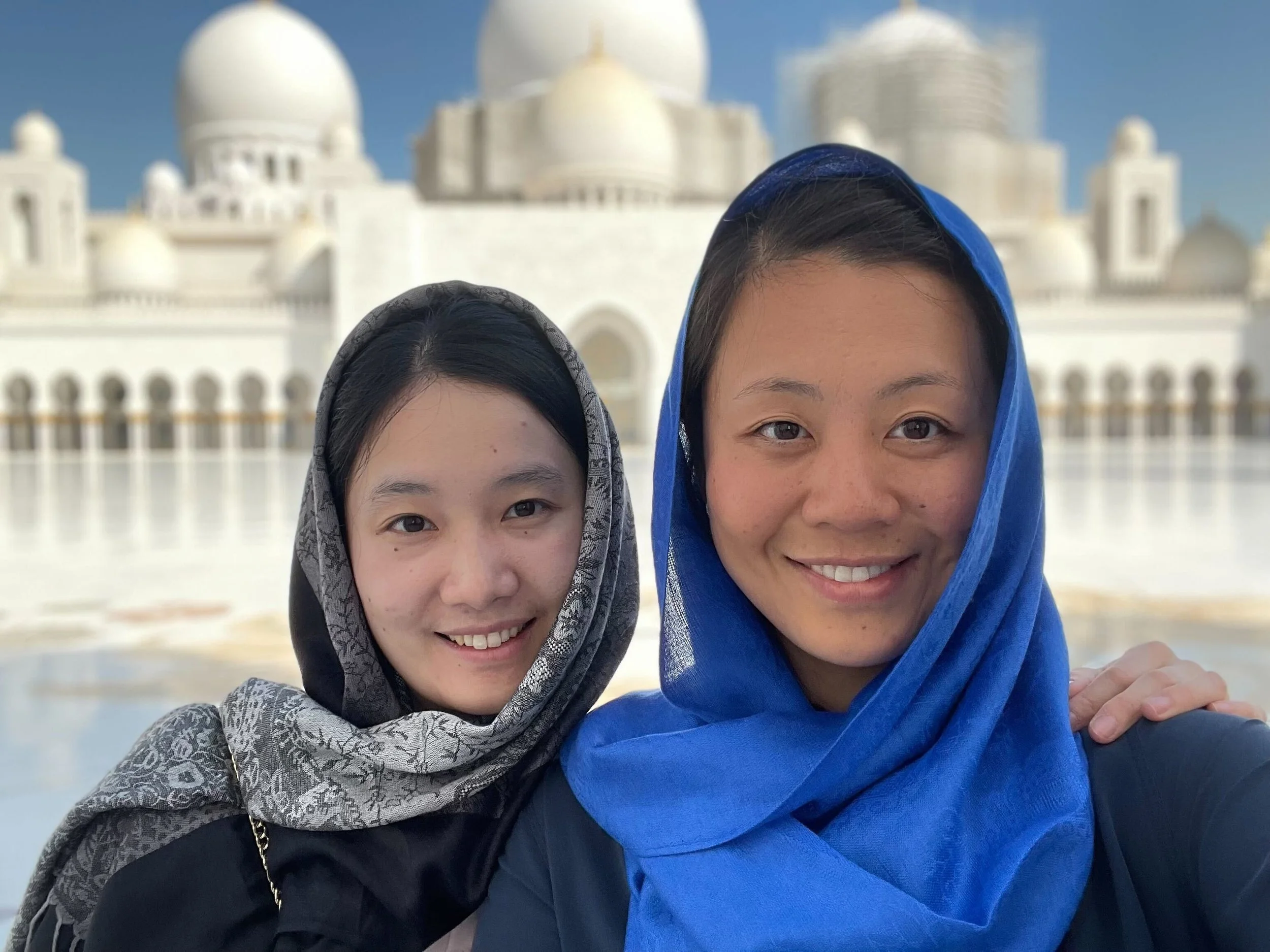.jpg)
Yajing Zhao (Cohort 2022, Mesophase) and Kezi Cheng (Cohort 2021, FLO Materials) in Abu Dhabi.
Marissa Beatty (Cohort 2022, Turnover Labs), Yajing Zhao (Cohort 2022, Mesophase), and Allyson McKinney (Cohort 2022, SoloPulse) have each pursued the highest degrees possible in engineering, developed groundbreaking technologies, and become CEOs. They’ve founded startups that could revolutionize carbon conversion, steam power, and remote sensing, respectively. Zhao and McKinney were recently named to the 2023 Forbes 30 Under 30 list, another testament to their promise and recognition as innovators.
They’ve achieved all of this in male-dominated spaces—in the fields of chemical, mechanical, and electrical engineering—and they are now forging paths in the world of entrepreneurship, where significant gender gaps exist in startup leadership, funding, and patenting.
These disparities have an impact: being a woman in science entrepreneurship requires navigating spaces not necessarily built for you, fielding advice not meant for you, working uphill against biases, and defying long-held stereotypes of women’s roles in innovation.
Yet women—and folks with other gender identities that are underrepresented in innovation—are so important to the equitable future we imagine.
For Beatty, Zhao, and McKinney, chasing their passions, embracing their uniqueness, and finding supportive communities have been key to their success as science entrepreneurs. For Women’s History Month, we asked them to share their experiences and advice.
What has been your biggest challenge as a woman in science entrepreneurship? How did you overcome it?
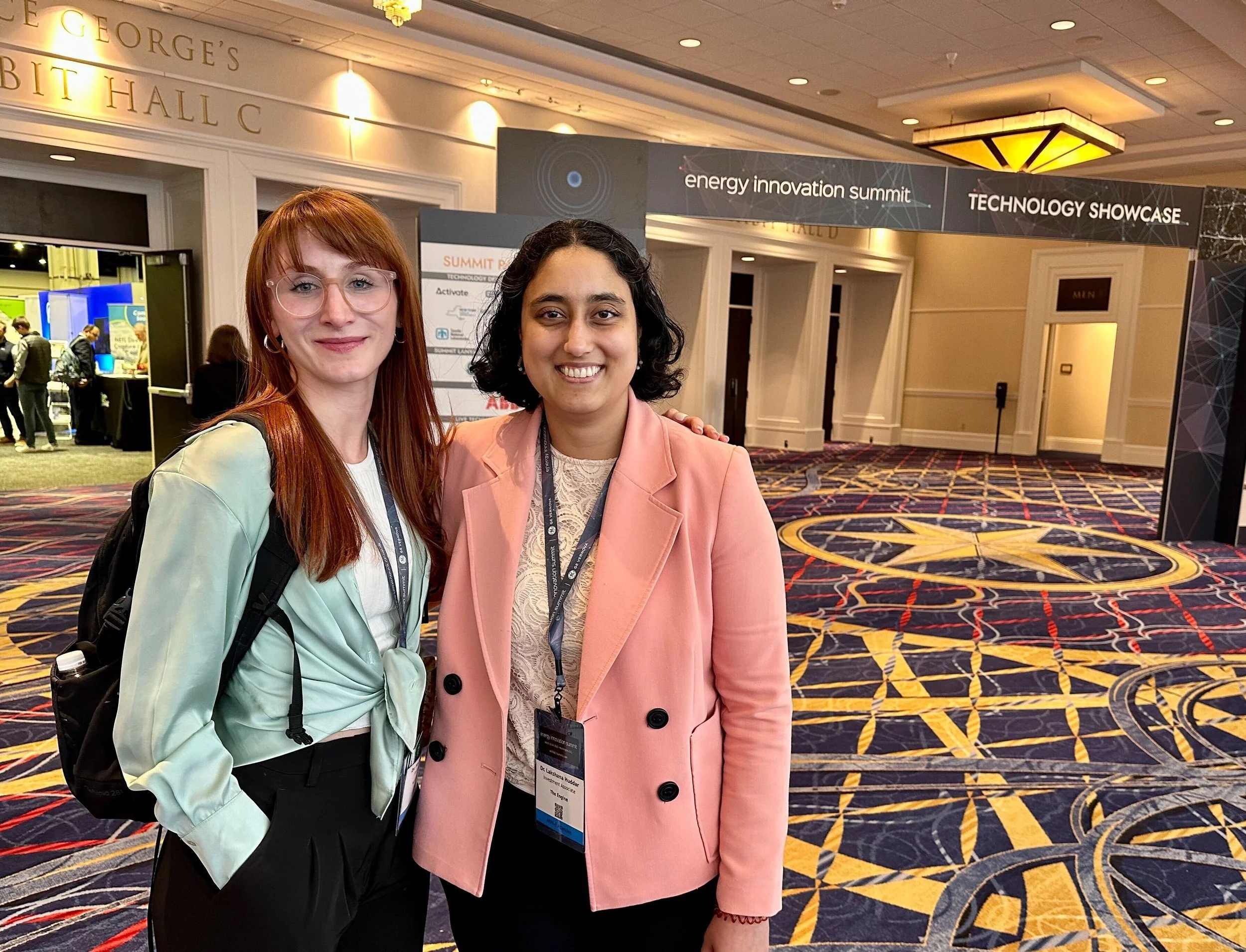
Marissa Beatty (Cohort 2022), founder and CEO of Turnover Labs, and Lakshana Huddar, investment associate at The Engine, at the 2023 ARPA-E Innovation Summit.
Marissa Beatty: Getting over the feeling that I have to act a certain way to be taken seriously has been an uphill battle. A lot of advice for entrepreneurs takes a "one-size-fits-all" approach, pushing a leadership style that can feel unnatural and can undervalue the skills that women have built from their own experiences. It helps to remind myself that relating with people genuinely is most important, and that my unique experiences and interests can actually help me to be a better innovator and leader.
“I then went on to get my Ph.D. in part because I loved the technology I was researching—but also to prove to myself and others that a woman is more than capable of achieving the highest degree possible in engineering. ”
Allyson McKinney: The biggest challenge that I overcame was, at one time, being surrounded by people who believed women were biologically and emotionally less capable of being an engineer than men. To overcome that, I listened to strong women leaders in my field who were disproving the idea that women were not capable. They validated my frustration and encouraged me to keep pushing. I then went on to get my Ph.D. in part because I loved the technology I was researching—but also to prove to myself and others that a woman is more than capable of achieving the highest degree possible in engineering.
Where have you found support?
Beatty: Surrounding myself with people who are active bystanders and who care about my well-being and success has been instrumental in feeling like I belong in my field as an entrepreneur. Some of the best support I've gotten has been from my male-identifying friends, who have stood up for me in moments when I wasn't sure enough about a situation to stick up for myself. It can be hard to know sometimes if you're making a big deal out of nothing, or if saying something will get you branded as "overly sensitive." Having friends on your side to affirm you and speak out on your behalf can really help clear up any doubt and help you feel less isolated overall.
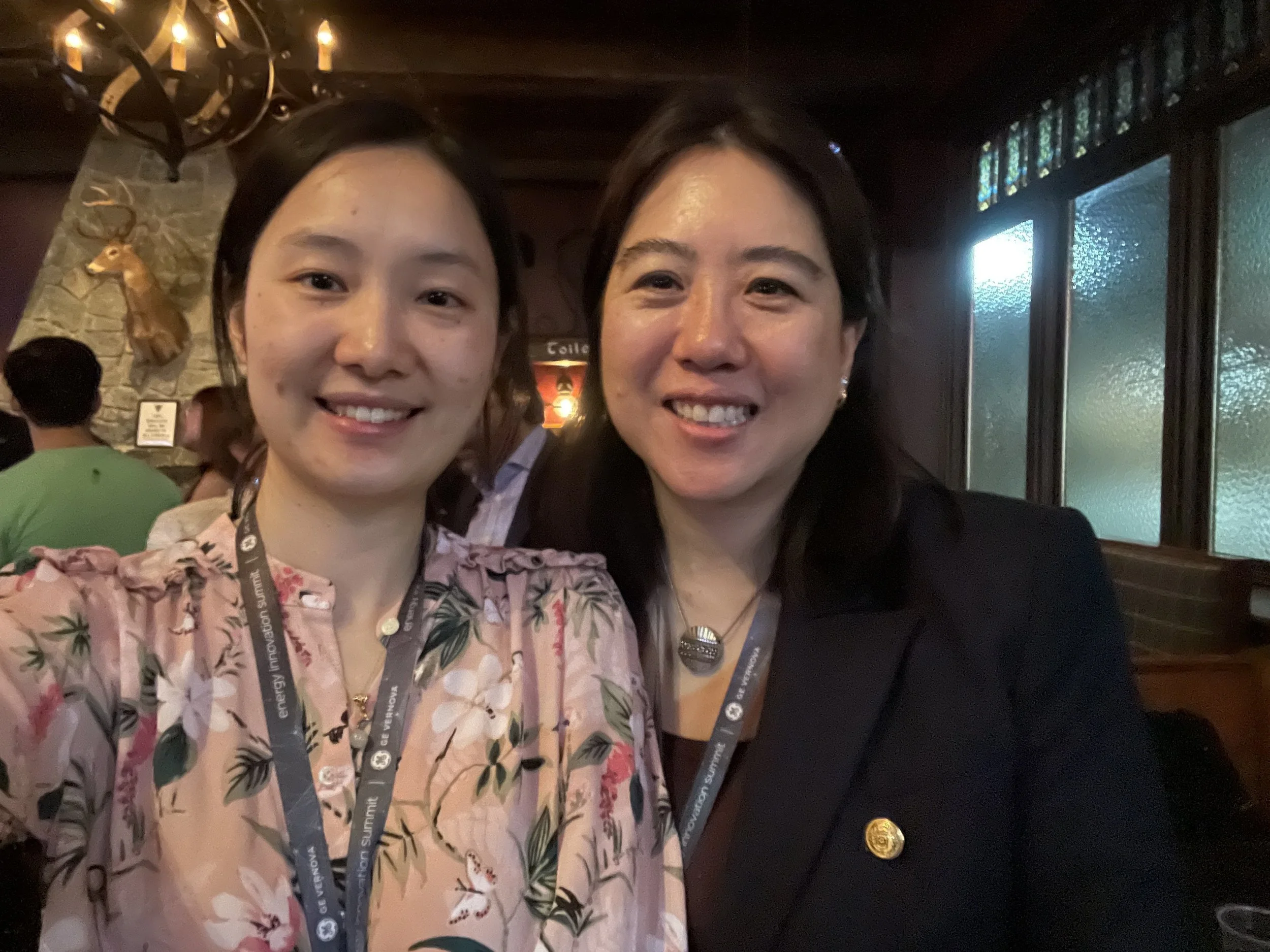
Yajing Zhao (Cohort 2022), founder and CEO of Mesophase, at the Activate social at ARPA-E with Vanessa Chan, the director of the U.S. Department of Energy's Office of Technology Transitions (OTT).
Yajing Zhao: I have received strong support from my family, my Ph.D. adviser (MIT Professor and Director of the Advanced Research Projects Agency-Energy Dr. Evelyn Wang, who has been a role model for me as a woman in STEM), my mentors and peers at Activate who are always willing to share thoughts and experiences with me, and especially, women entrepreneurs who have paved the way ahead of me. Earlier this month I attended the Forbes 30/50 Summit, which gathered different generations of women entrepreneurs for mentoring and bonding. I learned from their stories and left the summit feeling extremely empowered.
“Women founders secured only two percent of venture capital in the United States in recent years. VCs should recognize the existing gender bias and really take action to support women founders. ”
McKinney: Most of my support has come from three places. The first is from family members, especially my spouse. The second has been the entrepreneurial programs at Georgia Tech, like the Female Founders program and VentureLab. The third is the entire Activate community—I have never been around such strong women as well as an entire community of people who may not face the same biases but are fighting for equality all the same.
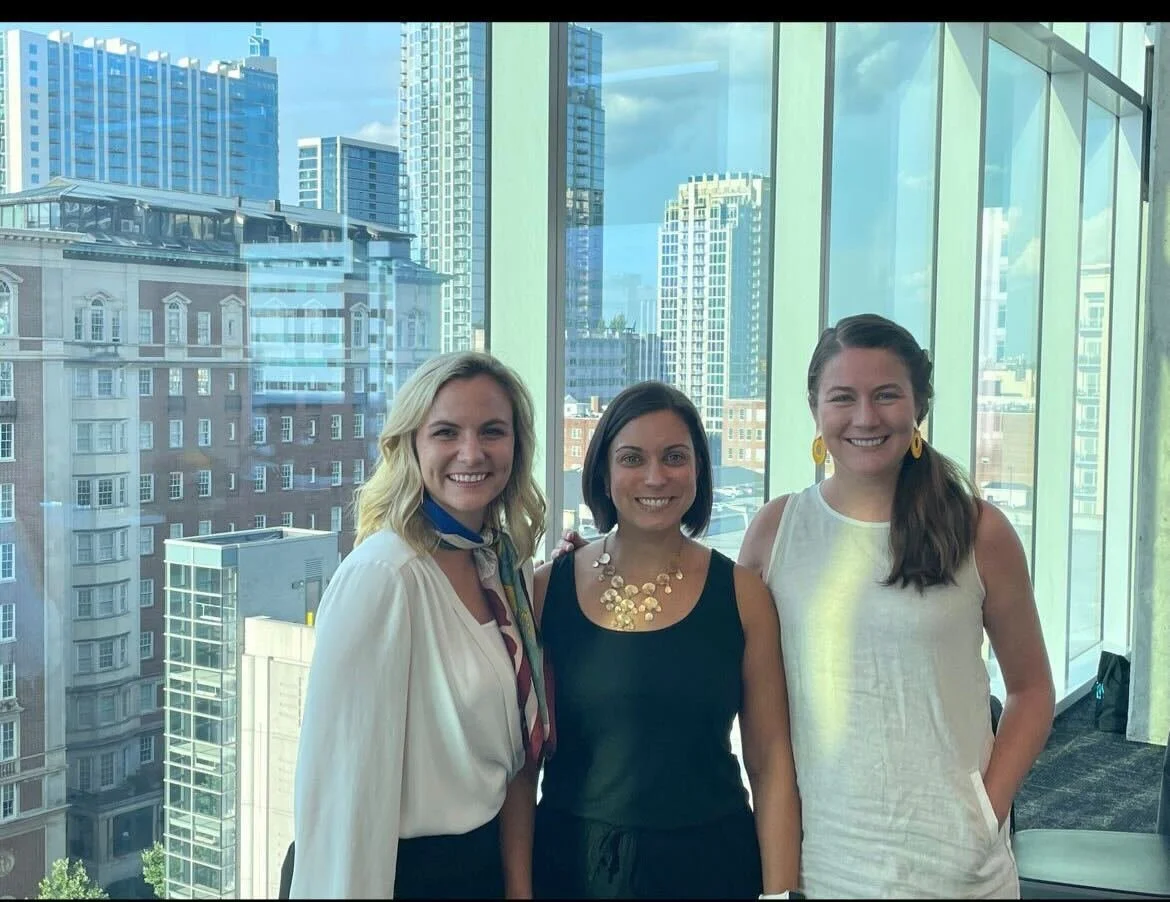
Allyson McKinney (Cohort 2022), founder and CEO of SoloPulse, with two mentors from the Female Founders program at Georgia Tech.
What is one way you'd like to see the science entrepreneurship ecosystem change in order to better support women and/or folks who are underrepresented in innovation?
Zhao: Women founders secured only two percent of venture capital in the United States in recent years. VCs should recognize the existing gender bias and really take action to support women founders.
McKinney: I think calling out imposter syndrome earlier in careers is crucial. I also think women in particular should ensure that we are not perpetuating the biases we’ve experienced. There is this idea of a “right of passage,” and I have had women be harder on me because they know how tough the path can be. I also have taken the same biased action in the past. But just because we have gone through things does not mean we should continue the cycle. Bias training and introspection are crucial, even for those who have been on the receiving end of negative biases.
What advice do you have for other women innovators?
Beatty: Chances are if you've received your education or led a career in a male-dominated field, then you have had to develop your ability to relate with folks who have very different experiences and viewpoints than your own. When it comes to building relationships with investors, customers, and employees from other disciplines, those skills are absolutely essential, and you should view them as an amazing asset that you already have in your toolbox!
Zhao: Lean in and let your voice be heard. Don’t let limiting narratives about women and work-life balance hold you back. Just follow your passion and find the support you need to succeed.
McKinney: Surround yourself with individuals who recognize your uniqueness and talent, then celebrate those things. Let these individuals be your biggest advocates—people you can turn to on low days and who will push you when imposter syndrome makes you think too small.
“[As an Activate Fellow] I have never been around such strong women as well as an entire community of people who may not face the same biases but are fighting for equality all the same. ”
About the Fellows
Marissa Beatty, founder and CEO of Turnover Labs, completed her Ph.D. in the chemical engineering department of Columbia University, where her research focused on developing universal design principles for an emerging class of novel electrolyzer catalyst structures. She now applies these principles toward the design of robust electrolyzers that convert carbon dioxide into valuable chemical fuels, which can operate under harsh or impure conditions without sacrificing device efficiency, selectivity, or lifetime.
Yajing Zhao is the founder and CEO of Mesophase, which seeks to enhance energy efficiency via surface innovations. She holds a Ph.D. in mechanical engineering from the Massachusetts Institute of Technology. She is passionate about clean energy and has spent two years of research in power plant thermo-economic analysis and six years of research in condensation heat transfer. Zhao advocates for women’s empowerment and served as the executive co-chair of the MIT Mechanical Engineering Graduate Association of Women.
Allyson McKinney is the founder and CEO of SoloPulse, which is commercializing a powerful new communication and remote sensing technique for a range of applications across industries. SoloPulse is building on foundational research developed out of the Barnes lab led by McKinney at the Georgia Institute of Technology, where she is a doctoral student. She holds several patents related to this technology. She is a member of the Institute of Electrical and Electronics Engineers (IEEE) Women in Engineering (WIE), a global network of IEEE members and volunteers dedicated to promoting women engineers and scientists.
